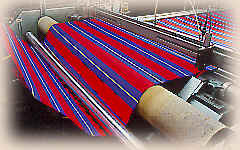|
Machinery
Tax And Sales Tax
 Position: North Carolina should not increase the rate or
remove the $80 cap on the tax on sales of machinery. Additionally, the
sales tax on utilities used in manufacturing and farming needs to be
reduced from 2.83 percent rate to one percent to be consistent with
the tax on machinery and equipment.
Position: North Carolina should not increase the rate or
remove the $80 cap on the tax on sales of machinery. Additionally, the
sales tax on utilities used in manufacturing and farming needs to be
reduced from 2.83 percent rate to one percent to be consistent with
the tax on machinery and equipment.
Explanation: There
are no states contiguous to North Carolina that impose a sales tax on
machinery and equipment used in manufacturing. This tax has not been
opposed by business because of an $80 cap which the General Assembly
wisely placed on this tax. The moderation with which this tax has long
been applied has helped North Carolina’s attractiveness to industry.
When a company is
considering North Carolina as a place to locate or expand, it looks at
many factors: transportation, availability of skilled labor, wage
rates, quality of life, utilities, educational and cultural
opportunities, land and building costs, and overall tax climate. When
it is building a plant, it must equip that facility with the tools
that will enable that company to produce the goods and services
profitably. A tax on the purchase of machinery, without the $80 cap
could be significant enough to cause a company not to build a facility
in the state-resulting in a loss of jobs and tax revenues.
Likewise, utilities
(electricity) are a major cost to manufacturers and farmers. All the
southeastern states, except North Carolina, exempt electricity and
natural gas used in manufacturing from the sales tax. For North
Carolina to be competitive, this tax rate should be reduced to one
percent.
Larger companies and
some company divisions often operate under a system called
“contention manufacturing.” Under this system, divisions of the
same company compete against other divisions and plants within the
company for the right to manufacture a given product. Decisions are
based on cost, quality, and other criteria. Competition is often very
close. If the cost for purchasing equipment to manufacture the product
or the cost of utilities are higher for a plant in North Carolina
because of these taxes, this fact may tip the scale against the
product’s being manufactured in our state.
Furthermore, a tax on
machinery to manufacture goods that ultimately will be sold at retail
contradicts the notion of a tax aimed only at retail sales themselves.
From an economic
standpoint, taxing the tools or utilities of production will only
serve to decrease the level of economic activity and growth in North
Carolina, and will decrease the level of revenues to the State in the
long run.
|
If you have comments on any of the NCCBI positions
or other issues,
please
click here for a feedback form |
-
Continue N.C. Budget Reform
-
Contingent Fee Audits
-
Defining "Doing Business" In North
Carolina
-
Property Tax Exemptions For Construction In
Progress And Product Samples
-
Change The Net Economic Loss (Nel) Carryover
-
Remove Credit Balances From The Definition Of
Unclaimed Property
-
Remove Inventories From Franchise Tax Base
-
Sales Tax Discount
-
Single Sales Factor
-
Proposed Model Unclaimed Property Act
Allow an R&D Credit for the Actual Amount
of N.C. Expenditure
|

